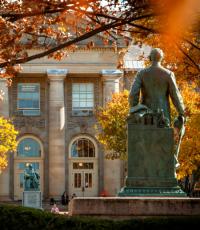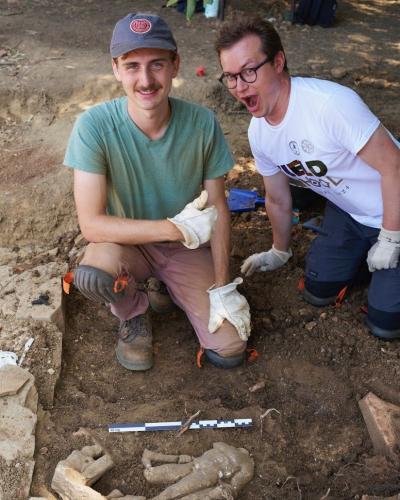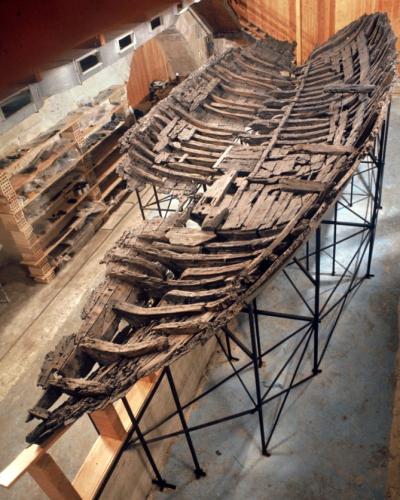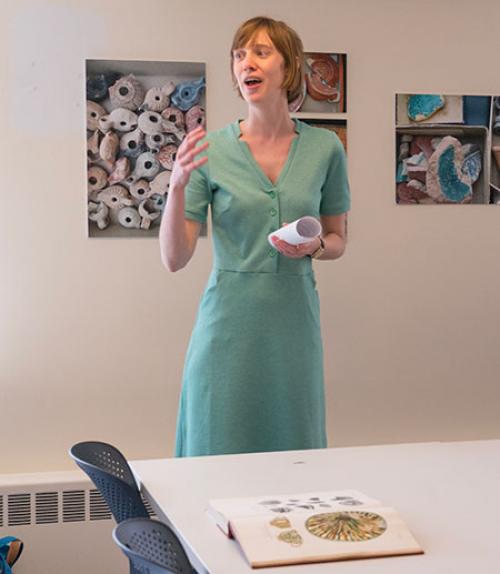
 Department Homepage
The College of Arts & Sciences
Department Homepage
The College of Arts & Sciences
New Material Culture Lab opens in Goldwin Smith
On May 2, a ceramics collection hidden away in a Cornell basement for decades got a new home, as the new Material Culture Laboratory in Goldwin Smith Hall had its grand opening.
More news





